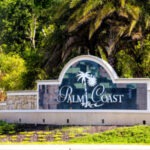On Tuesday, June 24th, 2025, the Palm Coast City Council held a workshop in the John Nets Community Wing at City Hall to discuss several issues impacting the community. The meeting was called to order at 9:00 a.m., beginning with the pledge of allegiance and a moment of silence. Mayor Norris, Vice Mayor Paneer, and council members Gambaro and Sullivan were present, while Council Member Miller was absent.
During public participation, several residents expressed concerns and opinions on various topics. Jeannie Dwarte criticized the city’s recent decisions, questioning the closure of a library despite requests for expansion and the approval of expenditures such as 5G towers, surveillance systems, and a $4 million fleet budget without adequate public review. She also highlighted infrastructure challenges, mentioning sewage backups and green potable water, urging the city to redirect funds from large expansion projects to critical water management needs. “Our officials are jumping ship, showing a lack of competency,” Dwarte stated, emphasizing frustration with current leadership. Mark Webb addressed the council regarding the YMCA and the aquatic center management. He noted that while the YMCA is enthusiastic about state funding for pool accessibility improvements, he felt discussions about the YMCA managing the city’s aquatic center were premature, given the timeline for construction. City Manager Johnson later clarified that the YMCA had proposed to manage the aquatic center at a lower cost while providing more programming, and that construction of the YMCA facility might proceed sooner than anticipated. On a more positive note, Denise Henry praised the city’s beautification efforts, noting the thriving magnolia blooms throughout Palm Coast. However, she raised safety concerns about a bicyclist repeatedly circling a lake path, suggesting signage to restrict bicycles in certain areas. She also questioned a proposed ordinance restricting musical instruments in parks, advocating instead for bans on panhandling rather than music, which she views as a source of joy.
Carolyn Johnson from Smart Animal Rescue brought attention to the issue of dumped dogs, revealing that 11 to 12 dogs had been rescued from a local area known as Harrove, many starved and scared. She praised cooperation from city staff and the sheriff’s department, highlighting ongoing efforts to monitor and catch those responsible for animal dumping. She urged a joint city-county meeting to address animal shelter needs, noting that Palm Coast has been significantly affected by these cases.
The council then turned to presentations, beginning with an update on the city’s employee health insurance plan. Danielle Bole of Brown and Brown Insurance Services explained that the plan is self-insured, allowing the city to benefit from pharmacy rebates and manage costs more effectively than traditional fully insured plans. However, medical and pharmacy trends are increasing costs, with pharmacy expenses rising due to specialty medications such as oral oncology drugs. The city is considering plan design changes, including a proposed 10% premium increase, and possibly closing the Preferred Option (PO) plan to new enrollments to encourage employees to switch to the more cost-effective Health Savings Account (HSA) plan. Council members discussed the importance of maintaining options for employees, with some expressing reluctance to close the PO plan due to its higher utilization and flexibility.
Next, the discussion moved to commercial solid waste hauling. Alyssa Rosco and consultant Allison Trullock presented findings from a recent study on the city’s franchisee agreement system for commercial waste collection. Currently, Palm Coast uses a non-exclusive franchise model allowing multiple haulers to operate if they meet registration and insurance requirements. The city recently hired a commercial compliance officer to enforce registrations and reporting, addressing prior lapses in oversight. The consultant noted the city’s franchise fees are lower than neighboring communities and suggested increasing fees and expanding reporting requirements to include construction and demolition debris and recycling. The report also examined the costly option of bringing services in-house, estimating a $6 million buyout cost due to displacement laws. Council members emphasized the need for improved enforcement and clearer liquidated damage penalties to ensure compliance.
Significant attention was given to the Palm Harbor Golf Course. Staff presented a draft Request for Proposal (RFP) for potential sale or management of the facility, alongside a recent appraisal valuing the course—including property, fixtures, and business interest—at approximately $1.8 million. The appraisal categorized the golf course as a “going concern” but noted revenues below ideal ranges and recommended 9 to 12 months of marketing time to sell. Capital improvement needs were outlined, including irrigation pump replacement and greens renovation, totaling nearly $1.5 million. Projected revenues and expenditures indicate the course operates at a loss, exacerbated by these necessary capital costs. Council members voiced deeply divided opinions. Some, including Councilman Gambaro, argued for putting the golf course out to bid, citing a longstanding inability to operate it profitably and emphasizing potential revenue from sale and reduced losses. He stated, “There’s a proven track record. We’ve been hemorrhaging money.” Others, including Mayor Norris and Vice-Mayor Pontieri, strongly opposed selling the course, citing its historical and cultural significance as the foundation of Palm Coast’s development. Concerns were raised about the low appraisal value, with references to a past purchase price of $5.5 million and tax write-offs suggesting a much higher value. They advocated for exploring alternative management strategies, such as hiring qualified golf course managers, revisiting fee structures, and renegotiating leases with the on-site restaurant, Loopers, to increase revenue. Public comments reflected similar divisions. Residents expressed concern over the possibility of the golf course being sold and developed into housing, urging the council to preserve it as a public amenity. Others called for improved management and financial accountability rather than sale. One speaker emphasized, “This city started at that golf course. None of us would be here if it weren’t for that golf course.” Another urged, “Find the person who makes this golf course profitable.”
The workshop concluded with updates on the city’s property tax and TRIM (Truth in Millage) processes, explaining the distribution of tax revenue among county, school board, and city services. The preliminary taxable value increased by 9.29%, with new construction accounting for a significant portion. Council members discussed potential millage rate adjustments, with some advocating for a rollback to ease the taxpayer burden while balancing budget needs. City Manager Johnson closed with acknowledgments of staff efforts, including ongoing public works projects, and recognized employee achievements. The council expressed appreciation for departing staff members and discussed upcoming community events.
The deliberations on the golf course, health insurance, and waste hauling show where the council stands on how to manage resources effectively while preserving the amenities that residents value. As Mayor Norris summarized, “We have a lot of smart people in this community. Let’s work together to find the best solutions.”










And this is exactly how reporting should be! Thank you. The other two major news outlets should take lessons. Though need to spell a few names right.